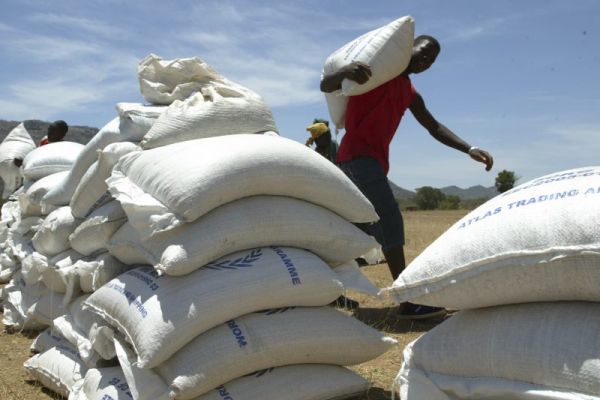Millions of people across Africa are now more food insecure than before Covid-19 hit, with most families surviving on one meal a day while in some cases can even go to bed without eating, which highlights some of the negative socioeconomic impacts brought by the new coronavirus.
This was said by the Chief Economic and Head of the Strategy, Analysis and Research Team at the Regional Bureau for Africa United Nations Development Programme (UNDP) in New York, Dr Raymond Gilpin, who said the Covid-19 pandemic in Africa had resulted in broader economic effects that caused direct and indirect impacts to families.
“We see in a number of countries, inflation, hoarding, supply and value chains are disrupted and what we now refer to as the ‘New Poor’ due to Covid-19. Although estimates vary, the World Bank estimated that 30 million of people who had been lifted out poverty before Covid-19, have now been pushed back to poverty because of Covid-19,” said Dr Gilpin addressing Sub-Saharan journalists on the socio-economic impacts of Covid-19 coronavirus to Africa last week.
“This has all sorts of social impacts as we have people who had become middle class are now living below the poverty line and this changes the dynamics in society almost completely.”
On February 14, 2021 Africa marked a year since the first Covid-19 case was reported in Egypt.
As of last week, there are over 3.7 million people with Covid-19 in Africa and 55 African countries have confirmed cases of the virus.
The UNDP official said food insecurity was one of the impacts caused by Covid-19, which was felt by most.
“According to the World Food Programme (WFP) about 168 million are now more food insecure than before the virus hit. In practical terms, one thing that we see a lot with Covid-19 is estimates, either estimates about how the virus will behave or how it’s affecting the economy but there’s the issue of food insecurity across the continent,” Dr Gilpin said.
“One, individuals are directly affected. Families that used to have three meals a day are now having one meal a day. In some cases they have no meals a day. This is not an issue of a decline in the availability of food but more so due to the decline in the affordability.”
In Zimbabwe, WFP projections in 2020 indicated that by year end, the number of food insecure Zimbabweans would have reached 8.6 million, a staggering 60 percent of the population, due to combined effects of drought, economic recession and Covid-19.
Dr Giplin said within social units, what was happening was resources that used to be devoted to other sectors such as health, education were now focused on survival.
“This means there will be school dropouts, fewer hospital visits, while expectant mothers cannot go to clinics. This also means there’s susceptibility to other diseases because there is less food intake and that becomes problematic,” said the UNDP official, noting that all these factors changed family and societal dynamics.
“It also means families who were able to fend for themselves now depend on the state, NGOs and other bodies for food handouts.”
He added that resilience was now undermined as families and societies were more fragile.
“In some cases, we see an increase in violence and conflict as there is more gender based violence or family violence. The fabric that keeps the societal ecosystem together is stretched because of food insecurity,” Dr Gilpin said.
Dr Gilpin said the incidence of Covid-19 was pretty skewed in Africa.
“Top 10 countries have 82 percent of total cases. 32 percent of countries have fewer than 100 deaths while 80 percent have fewer than 1000 deaths. 40 percent of the Covid-19 cases in Africa are from South Africa. Africa has 17 percent of the world’s population but only has 3.5 percent of global Covid-19 cases and 4.1 percent of global Covid-19 deaths,” said the UNDP official.
He indicated these statistics “were good but not quite (encouraging).”
“This is for two reasons, first last month (January 2021) these percentages were both below three percent which means Covid-19 is rising really quickly. Flattening the curve in Africa is problematic because the threshold of the curve is quite low in African countries. The health sector capacity is really thin, even at these low percentages, it is worrisome that we still see this increase in African cases,” explained Dr Gilpin.

